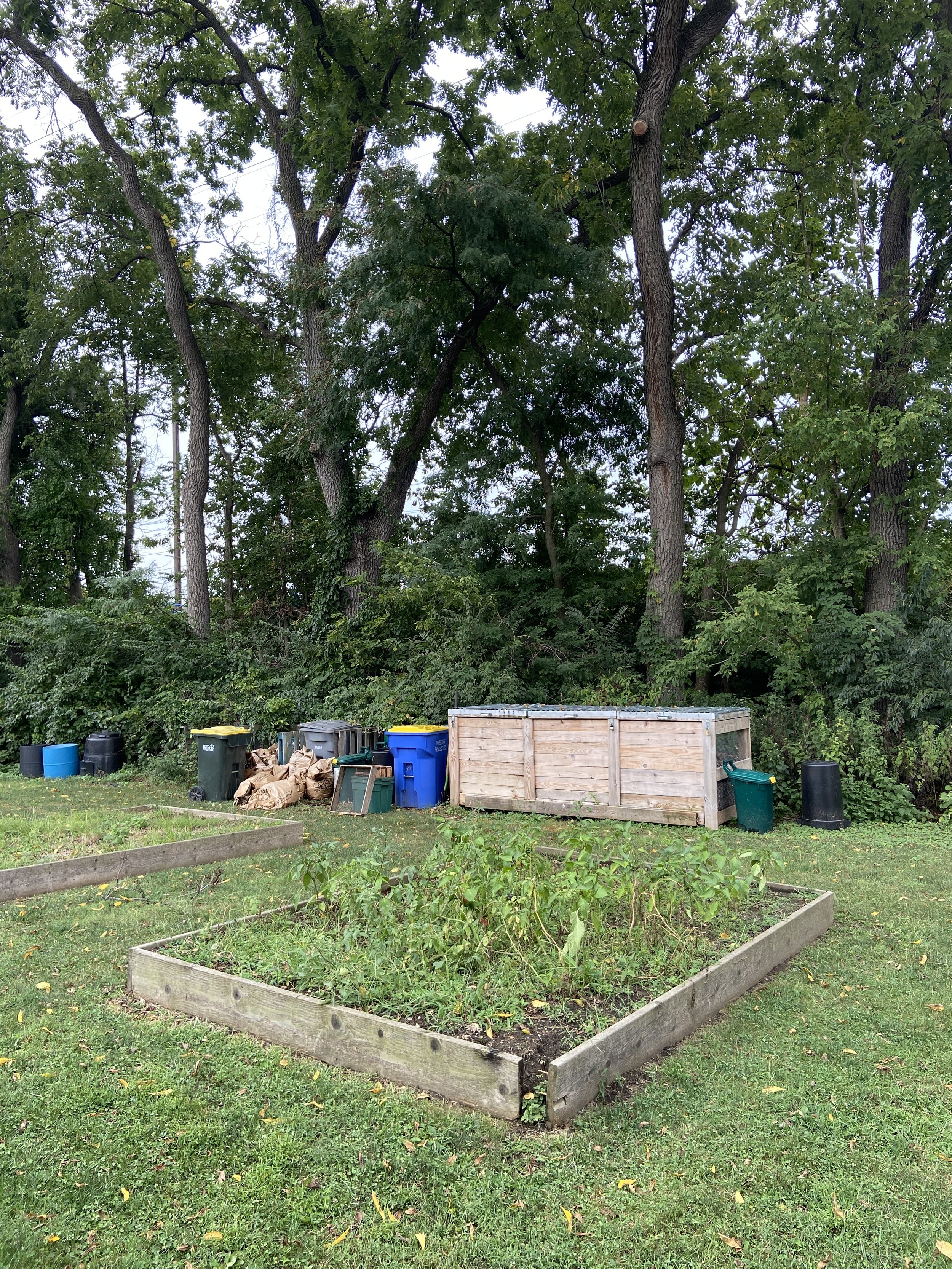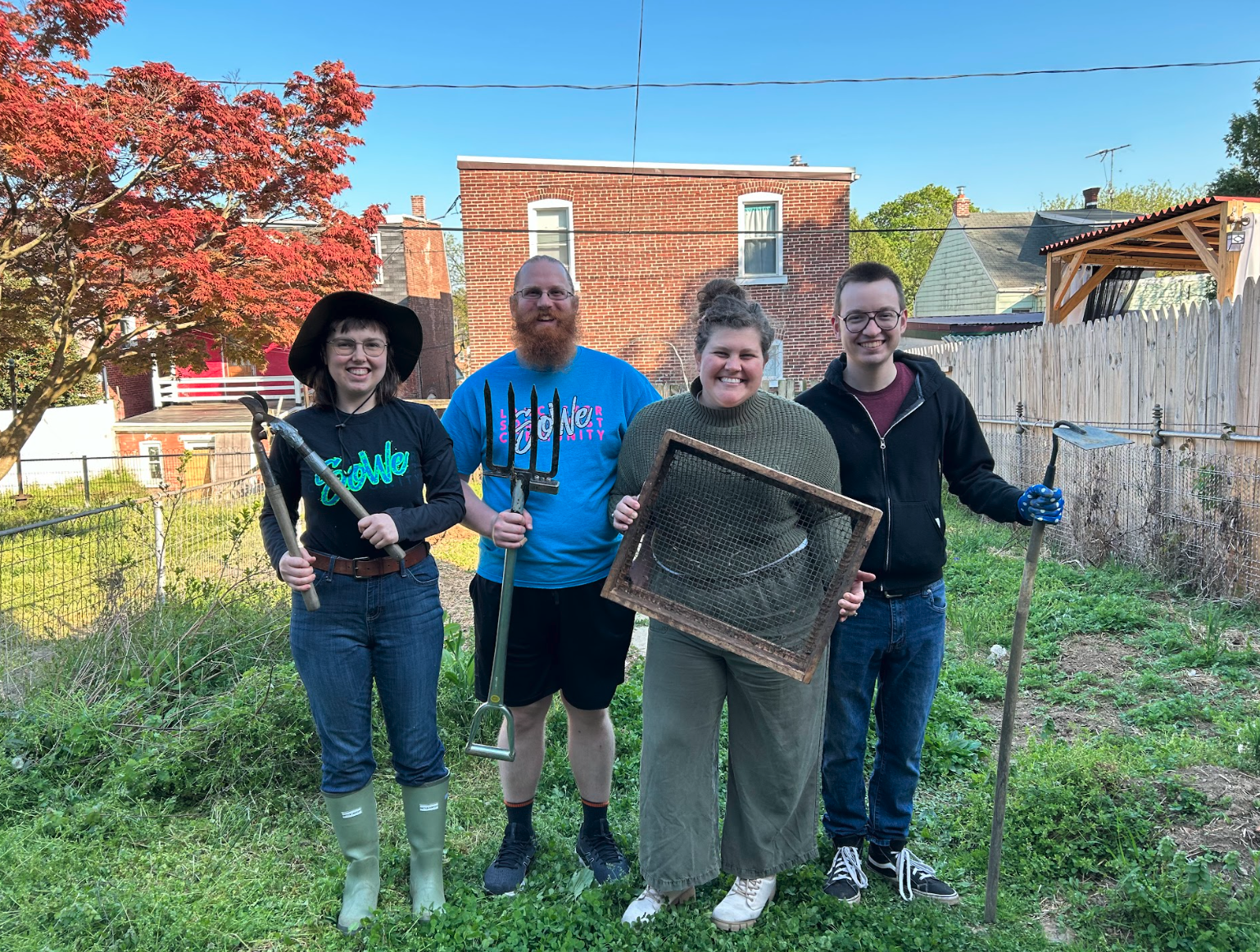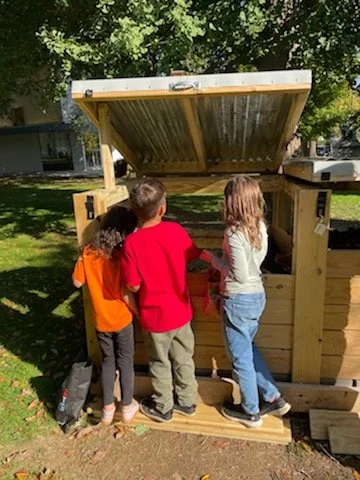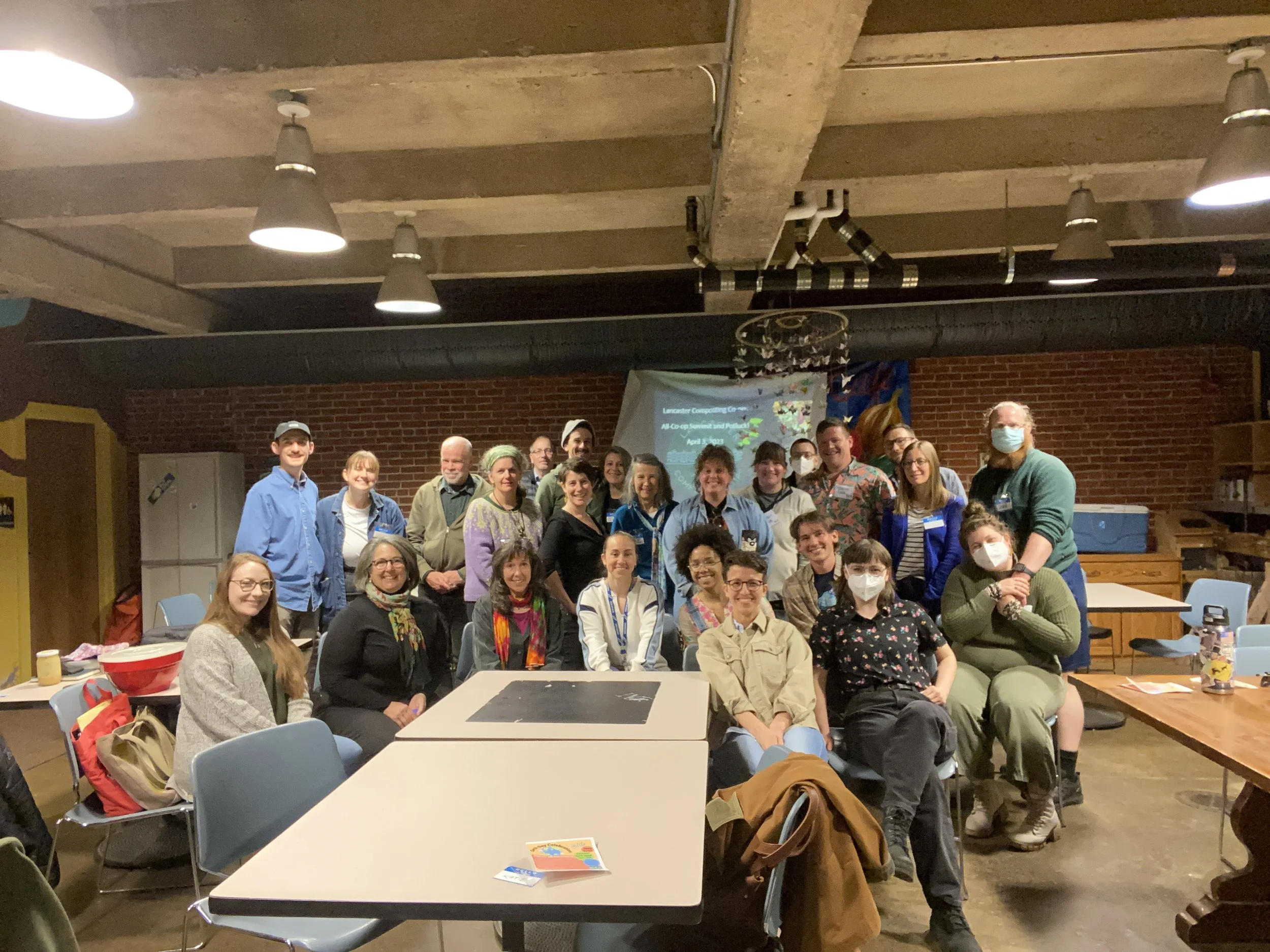BECOME A MEMBER
How Membership Works
1
Sign Up for a Free Orientation
Select a 1 hour training event via Eventbrite. Orientations are required so you are trained on how to use the bin and sign the required waiver.
2
Select Your Composting Site
After orientation, select your preferred site to compost and you will receive an exclusive lock code. Most people choose the site closest to their home, though location choice may come down to availability. You can email us to switch your bin at any time.
3
Start Diverting Waste
Start composting with 24/7 bin access, participate in work days hosted from April-November, and join our community of energetic composters!
Why Join?
Reduce your environmental footprint by diverting landfill waste and reduce your greenhouse gas emissions.
Take home finished compost when available to amend your soil at home.
Meet other like-minded people in your community.
Current Composting Site Locations
Bay Street (Northwest)
728 Bay Street, Lancaster (This bin is located on the Bay Street Community Garden property, access to the bin is on 2nd Street.)
This bin is situated on a green space within the Bay Street Community Garden, at the heart of the West Lancaster Jewels neighborhood. Originating as a victory garden plot during WWII, the site has maintained its role as a garden for several decades.
Behind Culliton Park (Southwest)
317 E Filbert St, Lancaster (The bin is inside the metal gate, directly behind the baseball diamond).
Reimagining a previously unused commercial space, the Behind Culliton Park site features picnic tables and a beautiful mural and often is a place for neighborhood wide events.
Brandon Park (Southwest)
525 Fairview Avenue, Lancaster, PA 17601 (This bin is located next to the parking lot next to the tree line and pollinator garden).
Backing up to the historic Lancaster Rec, the Brandon Park site adds to the richness of this thriving community park, which includes basketball courts, outdoor art, and native vegetation.
Buchanan Park (Northwest)
825 Buchanan Avenue, Lancaster (This bin is located between the bocce ball court and Visual Arts Center).
Located in the city’s most iconic park near Franklin & Marshall College, the Buchanan Park site uniquely has a pollinator garden and continually looks for more ways to be sustainable.
Lancaster Recycling Drop-Off Center (Northeast)
850 New Holland Ave, Lancaster, PA 17601 (The bin is located behind the drop-off center near the line of trees).
Sharing its location with the Lancaster Recycling Drop-Off Center, the New Holland Ave site has easy access for anyone who prefers to drive and is often a space for co-op educational events.
Linear Park (Northwest)
200 W Lemon Street, Lancaster (This bin is adjacent to the Boy’s and Girl’s Club and basketball court).
Tucked away on the path of the Northwest Corridor, the Linear Park site has an enthusiastic membership base who makes bin work days feel like a fun, social event.
Musser Park (Central)
135 N Lime St, Lancaster, PA 17602 (The bin is located near the intersection of N. Shippen Street and E. Chestnut Street).
Nestled under maples in this busy, historic neighborhood park, the Musser Park site is highly visible and boasts an extremely active community since it launched in 2021.
Our Community in Action
Did You Know?
Nearly 200,000 pounds of food waste are diverted from the solid waste stream annually through the Lancaster Compost Co-Ops’ bins. Source: Bratman et al. 2022 “LCC Program Evaluation and White Paper”
Frequently Asked Questions
-
Attend an orientation, learn how to be a good bin steward and sign the Lancaster Compost Co-Op Member Agreement.
-
Yes. All members are required to attend an orientation before being permitted to start composting.
-
Visit our Eventbrite page here where you can find an orientation during our active season (April-November).
-
For the benefit of using the bins, co-op members are asked to participate in as many 1-hour work days on a monthly to bi-monthly basis during the active season (April-November). These work days are for turning, adding to and sifting bin compost or performing any necessary bin maintenance. Aside from participating in regular bin maintenance, we are always looking for members who want to take a larger role such as becoming a co-captain, joining our leadership team, or hosting community events.
-
Join your compost captains and your neighbors to participate in fun, engaging, and crucial bin maintenance work days. These work days are for turning, adding to and sifting bin compost. That, and performing any necessary bin maintenance. Work days are also a great opportunity to meet your neighbors and fellow co-op members.
What: Every work day is a little bit different with varying activities based on the compost stage of your bin – from transferring contents to make room for more, to collecting browns, to sifting finished compost, to performing any necessary bin maintenance – every work day helps us care for our bin.
When: Compost captains schedule work days on a monthly to bi-monthly basis for about an hour during the active season (April-November) to ensure each bin is getting the love it deserves. Stay on the look out for emails and calendar invites from your compost captains to stay up to date on your bin’s next work day.
Where: At your community bin.
Why: Work Days are where we come together to be stewards and manage the health of our community bin. As a volunteer-led co-op it's up to all of us to participate so we have the privilege of continuing to use them. It is also a great opportunity to meet your neighbors and build community.
What to Bring: While we are actively working to stock the bins with more work day supplies, it never hurts to bring your own shovels, pitchforks, and work gloves to make work days even more productive. And don’t forget to bring water!
-
Anyone who attends an orientation and signs the waiver. You don’t need to live in Lancaster to be a member. We have members who drive in from nearby towns.
-
Most choose the bin closest to home or work, but depending on membership availability you may need to select your 2nd choice bin. All bins are located within 7 square miles of Lancaster City. Please note that you may conduct your orientation at a bin that is different from your selected site.
-
Fill out a contact us form to let us know which bin you’d like to transfer from and to.
-
You have access 24/7 (using your judgment and precautions) with exclusive locks and codes dedicated to your bin location.
-
Food and organic matter only. This includes:
• Fruit and vegetable scraps
• Eggshells
• Coffee and tea grounds; paper filters
• Small amounts of untreated yard waste/leaves
• Shredded, uncoated paper
• Shredded cardboard (tape removed)
• Straw -
• No compostable products of any kind such as compostable silverware, bags, etc. (they are designed for commercial composting only).
• Meat
• Cheese or other dairy products
• Bones
• Fish
• Oil/Fat
• Pet waste
• Sticks and branches over 1/2 inch wide
• Diseased plants or weeds
• Plastic, metal, styrofoam or glass
• Whole pits, avocado seeds, corn cobs, or pumpkins (they are permitted to be composted but must be cut into smaller pieces first) -
Only place organic matter in the active bin as directed by your compost captain
Size matters! The smaller the piece size of the organic matter the better. Cut up any whole produce before composting
Cover the organic matter with browns every time you drop off scraps with leaves, shredded uncoated paper, or cardboard.
-
There are several ways to store your organic matter depending on your living situation. Many members in smaller living spaces without outdoor space freeze their scraps. If you have outdoor space you can consider storing scraps in a bucket with a sealed lid.
-
It is distributed among members on a first come first served basis at work days or may be picked up after work days.
-
Find us on social, sign up for our newsletter in the footer, or you can always contact us here.
-
Due to their durable construction, bin lids are quite heavy. Each has a small wooden “prop,” but you may wish to bring a friend (or reach out to a fellow member) to help. The bins are kept closed and locked when not in use, with the combination of the lock accessible only to our members.
-
Each bin has a less than a 100 square foot footprint and is made from heavy-duty plywood with metal lids. The bins are constructed with three locked compartments with removable front panels – allowing compost to be turned and moved during different stages of processing. Each bin can handle the organic waste from approximately 70 households.
-
According to NDRC, “composting is the natural process of recycling organic matter, such as leaves and food scraps, into a valuable fertilizer that can enrich soil and plants. Anything that grows decomposes eventually; composting simply speeds up the process by providing an ideal environment for bacteria, fungi, and other decomposing organisms (such as worms, sowbugs, and nematodes) to do their work. The resulting decomposed matter, which often ends up looking like fertile garden soil, is called compost. Fondly referred to by farmers as “black gold,” compost is rich in nutrients and can be used for gardening, horticulture, and agriculture.”






















